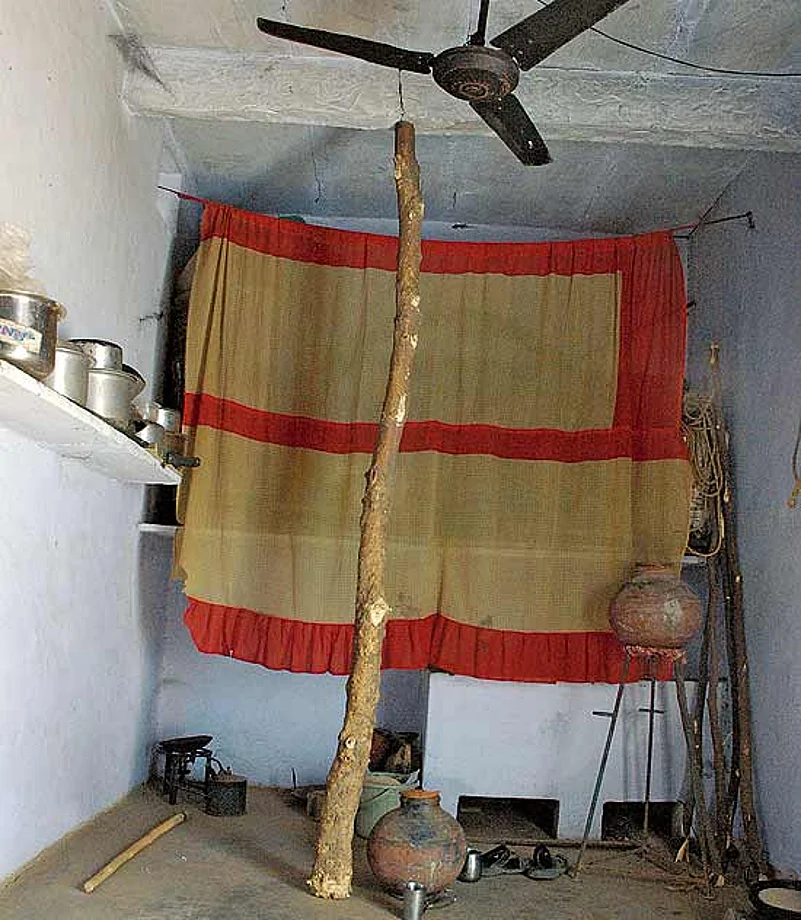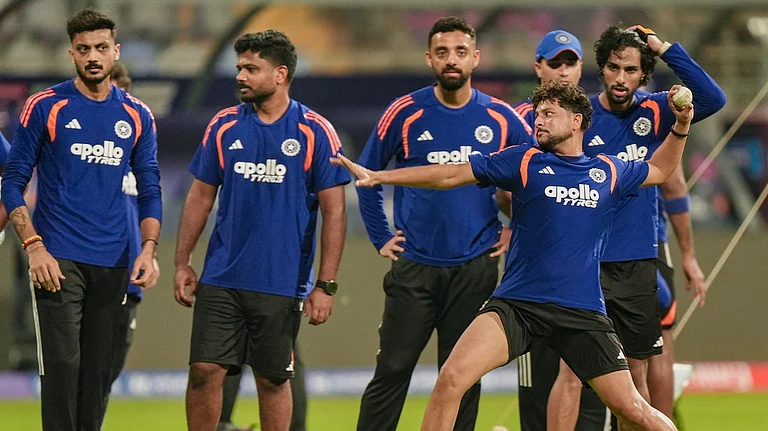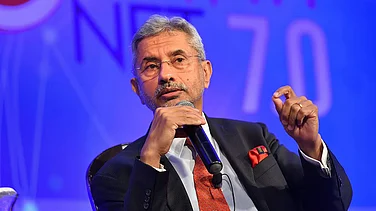Who’s The Quarry?
- More than 400 active leases in the Sikar belt
- 1,200 trucks move out of Rajasthan Aravallis daily
- In Dabla alone, 50 ha of land mined
- Area has five small rivers, three clogged with sludge.
***
The ceiling of her house has some long cracks, the roof has become unstable, the floor in some parts has caved in. When Reshmi built her house in the Dabla village of Sikar district in Rajasthan last year, the 65-year-old Dalit woman had thought it would be her refuge in her old age. Instead, she lives a nightmare every day. There are blasts, the earth keeps shaking. It’s like living in a war zone that is simultaneously having an earthquake.
Reshmi is one of the unfortunate residents of a cluster of villages in the Neem Ka Thana belt in Sikar, where the mining mafia is operating in complete violation of court orders. Having been pushed out of Haryana after the Supreme Court stopped mining there, the mining firms have moved into the Aravallis of Rajasthan. Advocate Pallavi Mehta explains what’s going on. Although the 2002 SC order restricted mining in the entire Aravalli range, existing companies were given permission in 2005 to mine in some areas. But, Mehta says, “we found many new companies whose addresses can’t be verified.” The Rajasthan government, meanwhile, passed an order that hills below an elevation of 100 metres are not part of the Aravallis!
Given this inch of concessions, the miners have extracted a mile. They’re blasting holes into the range to wrench stones and gravel for building material and to make cement. Nary a thought is spared for the villagers whose homes and lives are being systematically destroyed. They are terrified of the deep-hole blasts of ammonium nitrate. In violation of every safety norm, mines and crushers are operating very close to homes, schools and public spaces. Dullaram, an old man from Biharipur village, has tears in his eyes: “Hundreds of trucks pass every day through our villages, loaded with stones and crushed gravel. They’re damaging our houses and roads. We’re scared, the air is polluted. Our life has become hell. Please do something for us.”

In villages like Dabla, Biharipur and Raipur, the pollution is taking a toll. Eczema, asthma, silicosis and TB are common. Accidents too are frequent. Last year, Jotmal, 32, of Kundala ki Dhandi village, was buried to death under a gravel-laden trolley, leaving behind seven daughters and a wife. The blasting has killed cattle and injured children, women and men.
Houses given to BPL families under the Indira Aawas Yojana have developed cracks; some are severely damaged. Documents obtained under RTI reveal common lands have been allotted illegally to mining companies; roads have been made on some of these lands. Small rivers in the area have been choked. In instances, they’ve vanished. The likely impact on ecology/irrigation can be imagined.
The documents also reveal that the mining companies are using ammonium nitrate without requisite licences. The preferred choice of explosive in terror attacks, the open sale of high-grade NH4NO3 has been banned. A few employees of the mining companies were held for its use but released after a paltry penalty of Rs 1,000.
Local Congress MLA Ramesh Khandelwal continues to bat for the mining lobby. “It’s not possible for them to follow each and every rule,” he says. “There are problems due to mining and stone-crushers but we can’t ignore the employment generated.” A casual tour of Biharipur village, however, gives a lie to that claim. Most workers at the mining site are migrants from UP, Assam, Bihar and other states. Twelve-year-old Arshad, for instance, is from Assam. Headphones on, he’s crushing stones while listening to Bollywood songs. He is paid Rs 230 a day, double the minimum wage the state government pays under NREGA. Leelaram Gurjar, who runs a tea shop close to the mining site, reveals that mining companies studiously avoid hiring locals.
Yet, Khandelwal insists all is well and people are being instigated to extort money. While Khandelwal Sr enthuses thus about mining, son Praveen is building a liquor plant. Meanwhile, Kailash Meena, who’s organising people against the mining, asks: “What will we eat if this goes on? Gravel, stones or poison?”





















